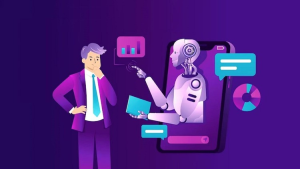The Future of Chatbots and Virtual Assistants in Business
Introduction Chatbots and virtual assistants are changing the way companies work and interact with customers. They streamline communications, automate routine tasks, and incre...

Introduction
Chatbots and virtual assistants are changing the way companies work and interact with customers. They streamline communications, automate routine tasks, and increase productivity. As digital solutions evolve, these intelligent tools will become even more important in the business environment.
Smarter Interactions with Advanced AI
Chatbots are becoming more communicative thanks to natural language processing (NLP) and machine learning. They recognize the tone, context, and intent of the person they’re speaking to, making their responses more natural. Virtual assistants are now capable of making complex decisions. They can even learn from previous interactions. Thanks to advances in artificial intelligence, these tools will soon be able to engage on a more emotional level, improving user satisfaction.
Automation Across Every Department
Today, automation is critical to efficiency. Chatbots help customer support teams reduce wait times and handle repetitive inquiries. Sales teams use them to qualify leads and guide potential customers through all stages of the buying process. HR departments rely on assistants to answer employee questions and manage the onboarding process for new customers. As chatbots become more popular, they will automate more and more workflows, freeing employees to focus on creativity and achieving strategic goals.

Personalization at Scale
Personalized service can increase loyalty and conversion. Chatbots and virtual assistants analyze behavior and preferences. They then tailor responses based on data. They can suggest products, remind users to renew their subscriptions, or provide targeted content. Working 24/7, they ensure consistent engagement. Better analytics will make personalization even more accurate and dynamic.
Voice Assistants and Multimodal Interfaces
Voice assistants continue to grow in popularity. Many now use them for shopping, banking, and smart home control. Multimodal interfaces are also emerging. Users can interact using voice, text, gestures, and even images. Companies that support a variety of input styles will be able to attract more customers. Accessibility will also improve, especially for people with disabilities.

Powerful Data Insights
Every interaction with a chatbot yields valuable insights. Companies can analyze trends in customer interests, complaints, and product performance. This data helps companies make more informed decisions. They can optimize support processes, improve products, and create more effective user experiences. As analytics tools become more intelligent, data-driven decisions will be made faster and more accurately.
Security, Privacy, and Compliance
Trust remains critical. Chatbots often process personal and financial data. Therefore, companies must ensure strict security controls. Encryption, secure authentication, and data compliance will become standard. Ethical use of AI will also play an increasingly important role. Transparent information about data use will help build user trust.
Hybrid Collaboration with Human Agents
AI tools are not intended to replace human capabilities. On the contrary, they complement them. Chatbots handle large volumes of questions and repetitive tasks. When empathy and creative thinking are required, humans take the lead. This hybrid model improves efficiency and service quality. It also contributes to increased employee satisfaction.

Sector-Specific Growth
The use of virtual assistants will expand across various industries:
- E-commerce: product recommendations, order updates, and automated support
- Healthcare: appointment scheduling, patient triage, and medication reminders
- Finance: fraud prevention, personalized banking assistance, and secure transactions
- Real estate: property searches and virtual tours
- Tourism and hospitality: reservation management and multilingual service
Each industry will develop its own intelligent workflows.
Predictive and Proactive Assistance
Future chatbots will not just answer questions. They will anticipate needs. They might notify customers about delayed deliveries before they ask. They may warn organizations about potential system issues. Proactive intelligence will create better customer experiences and reduce friction.
Conclusion
The future of chatbots and virtual assistants in business is enormous. They will become more intuitive, secure, and deeply integrated into everyday operations. Companies that implement these technologies will gain a competitive advantage. Therefore, now is the perfect time to invest in more intelligent, scalable, and easy-to-use communication solutions.